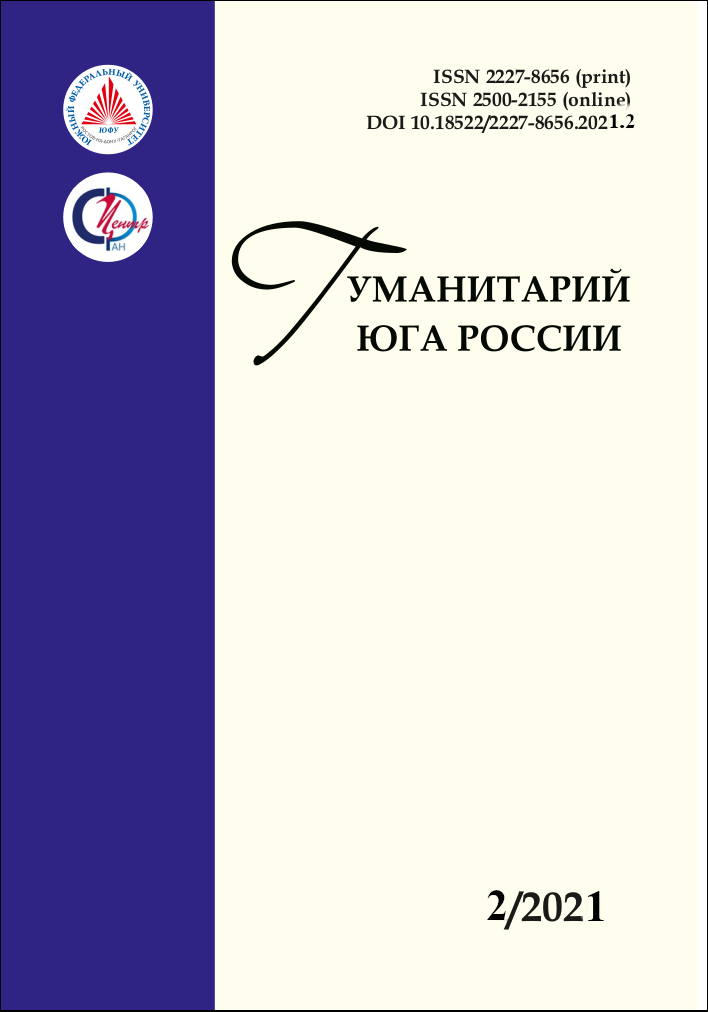Воспроизводство и трансформация институциональной системы: подходы к исследованию
Научная статья
Аннотация
Литература
Гельман В. «Подрывные» институты и неформальное управление в современной России // Пути модернизации: траектории, развилки и тупики : сб. ст. / под ред. В. Гельмана и О. Маргания. СПб.: Изд-во Европейского ун-та в Санкт-Петербурге, 2010. 408 с.
Жуков Ю.М. Ценности как детерминанты принятия решения. Социально-психологический подход к проблеме // Психологические проблемы социальной регуляции поведения. М., 1976. С. 255–276.
Заславская Т.И., Ядов В.А. Социальные трансформации в России в эпоху глобальных изменений // Социологический журнал. 2008. № 4. С. 8–22.
Ильченко М.С. Коррупция как фактор воспроизводства трансформирующейся политической системы // Актуальные проблемы научного обеспечения государственной политики Российской Федерации в области противодействия коррупции : сб. науч. тр. по итогам Всерос. науч. конф. / под ред. В.Н. Руденко. Екатеринбург: УрО РАН, 2014. С. 86–93.
Кирдина С.Г. Институциональные матрицы и развитие России: введение в Х-Y-теорию. 3-е изд., перераб., расшир. и илл. СПб.: Нестор-История, 2014. 468 с.
Маркс К., Энгельс Ф. Из ранних произведений. М., 1956. С. 590–591.
Мартьянов В.С. Коррупция и сословно-статусная рента в России // Актуальные проблемы научного обеспечения государственной политики Российской Федерации в области противодействия коррупции : сб. тр. по итогам Второй Всерос. науч. конф. с междунар. участием / под ред. В.Н. Руденко. Екатеринбург: УрО РАН, 2016. С. 31–49.
Ментальные программы и модели социального поведения в российском обществе / под ред. А.В. Лубского. Ростов н/Д.: Фонд науки и образования, 2016. 392 с.
Оберемко О.А., Ядов В.А. Общетеоретические подходы к анализу социального развития и социальных изменений // Социальные трансформации в России: теории, практики, сравнительный анализ / под ред. В.А. Ядова. М.: Флинта, 2005. С. 10–44.
Парсонс Т. О структуре социального действия. М.: Академический проект, 2000. 880 с.
Подопригора А.В. Эволюция голема: институт российской коррупции в условиях цифрового общества // Актуальные проблемы научного обеспечения государственной политики Российской Федерации в области противодействия коррупции : сб. тр. по итогам Третьей Всерос. науч. конф. с междунар. участием. Екатеринбург: Ин-т философии и права Урал. отд-ния Рос. акад. наук, 2019. С. 279–306.
Полтерович В.М. Институциональные ловушки и экономические реформы // Экономика и математические методы. 1999. Т. 35, № 2. С. 1–37.
Саморегуляция и прогнозирование социального поведения личности: диспозиционная концепция. 2-е расшир. изд. М.: ЦСПиМ, 2013. 376 с.
Ситников А.П. Архаизация, традиционализация и модернизация в социокультурной трансформации российского общества // Гуманитарий Юга России. 2021. Т. 10, № 1. С. 44–51.
Тощенко Ж.Т. Антиномия – новая характеристика общественного сознания в современной России // Социологические исследования. 2010. № 12. С. 63–72.
Шматко Н.А. «Габитус» в структуре социологической теории // Журнал социологии и социальной антропологии. 1998. Т. 1, № 2. С. 60–70.
Bourdieu P. La Reproduction, éléments pour une théorie du système d’enseignement. P.: Minuit, 1970. 283 p.
De Fleur M.R., Westie F.R. Verbal attitudes and overtacts // American Sociological Review. 1958. Vol. 236.
Hofstede G. Dimensionalizing Cultures: The Hofstede Model in Context // Online Readings in Psychology and Culture. Unit 2. Theoretical and Methodological Issues. Subunit 1. Conceptual Issues in Psychology and Culture. 2011. P. 8. Available at: http:// scholarworks.gvsu.edu/cgi/viewcontent.cgi?article= 1014&context.
La Piere R.T. Attitudes versus action // Attitude theory and measurement. M. Fishbein. (Ed.). New York, 1967.
Smith M.В. The personal setting of public opinion // Public Opinion Quarterly. 1947. Vol. III. P. 517–523.
Поступила: 01.03.2021
Опубликована: 28.04.2021






